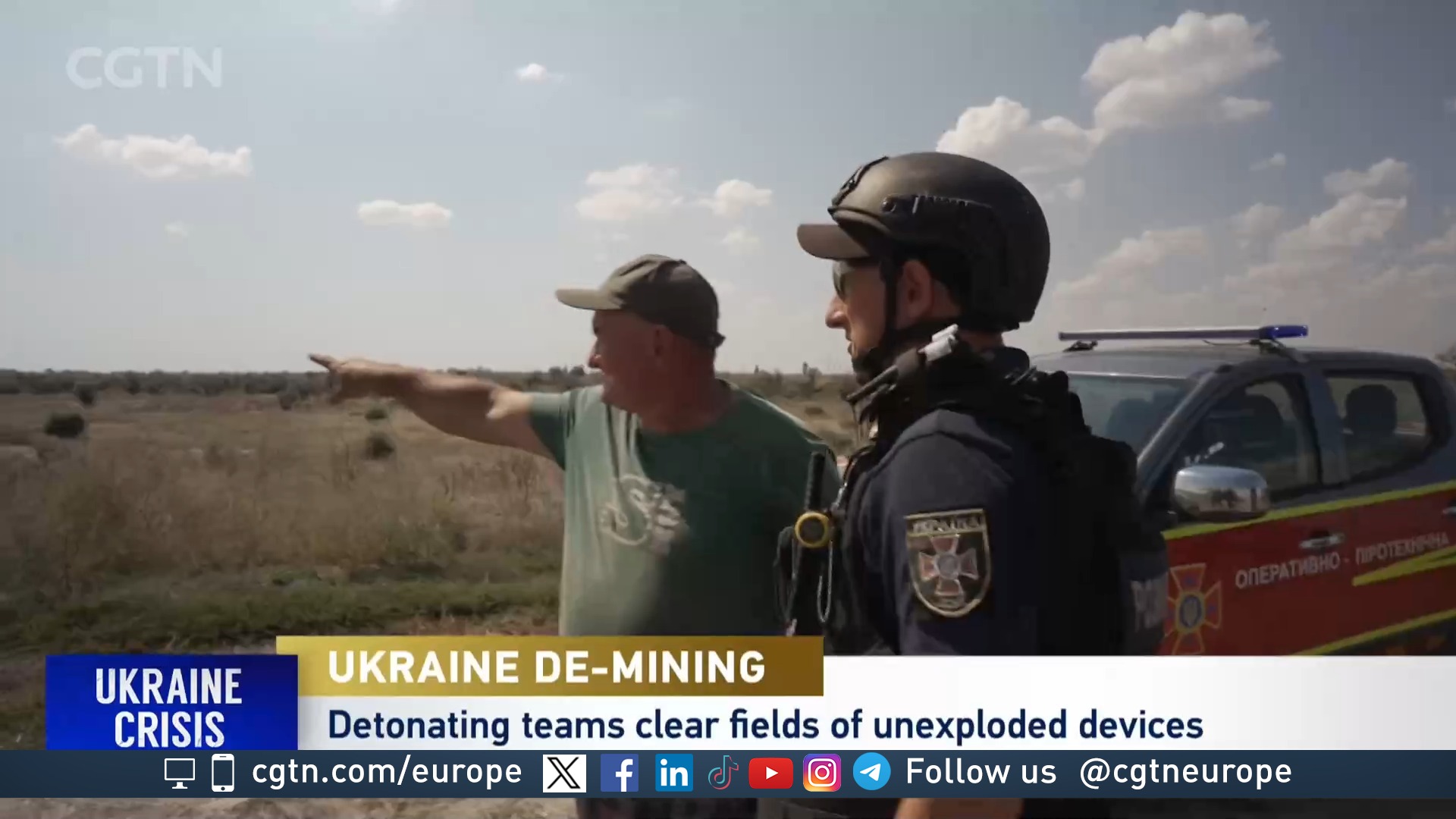02:50

In Greek mythology, the Corinthian king Sisyphus was punished for cheating death by Hades, the god of the underworld, with an impossible task that would last an eternity. The people of Kherson in Ukraine may feel an empathy with Sisyphus as, having avoided the shelling and then the floods, they are now left with the challenge of rebuilding their homes and their lives.
Clearing mines and detonating explosives and shells left after fighting are among several dangerous tasks expected of Ukraine's emergency service teams. Near the city of Kherson in southern Ukraine, still under fire from Russian forces, there are dedicated units of combat engineers, also known as sappers.

A Kherson emergency services undertaking painstaking work. /CGTN
A Kherson emergency services undertaking painstaking work. /CGTN
I watched Serhii Siroshtan, leader of a pyrotechnic unit for Kherson emergency services, in action. A farmer has called the emergency team after finding a metal tube while plowing his land.
Having told the sappers the approximate size of the ordnance, Siroshtan went to investigate.
"We get calls almost every day," he told me. "The village (nearby) was occupied by Russian troops, and we found lots of ammunition around here: like rocket-propelled grenades, bullets, shells - and in this field we found cluster elements from the Uragan, a multiple rocket launcher system."
It's not about to explode, so I went with him to see up close what looks like a cluster bomb. As soon as the explosive's wiring had been connected, we stayed out of sight with the team to watch the detonation.
Just a few hundred meters away, there's another hazard - several artillery shells. This time it's a Russian artillery position. The team inspected the pile of shells and decide they need detonating
We were taken further back - some 300 meters away - to watch their controlled explosion.

Another device is checked. /CGTN
Another device is checked. /CGTN
READ MORE
Inside Kherson - a city shattered by flood damage and landmines
What Chinese treasures in the British museum?
Is the Fukushima treated water safe?
Up to ten times a day the team was called on to defuse or remove explosives. Siroshtan told me: "Yes, the work is dangerous, but someone has to do it. It just so happened that we do it and will continue doing it for years."
He added: "On May 6, (in) one of our units' six guys were killed while on a mission. Russian troops were firing their artillery and they attacked our team….and the six of them were killed."
While we watched the sappers at work, Ukrainian jets roared by. It's a reminder that the conflict in Kherson is never far away.
Daily shelling makes most parts of the city too dangerous to live in and the local military administrator actively discourages people from returning. Oleksandr Prokudin, head of Kherson's Regional Military Administration, said: "As for Kherson, yes, I do not advise people to return here because it is dangerous.
"Kherson is constantly under fire. People are killed and injured and even when they go to hospitals, missiles fly past them. Every day we have similar incidents and we have to bury people. So of course it is not advisable for people to return."
It's perhaps ironic that after celebrating the withdrawal of Russian troops last November, Kherson's people continue to face shelling and bombing each day, with no end in sight to the grueling 18-month-old conflict.
Subscribe to Storyboard: A weekly newsletter bringing you the best of CGTN every Friday